Katie Hannon, long a stalwart of current affairs on radio and TV, is now hosting her own show. She talks to Donal O'Donoghue about her 'unplanned career’, her Kerry roots and her family.
"My mother used to say that I was always mad for road," says Katie Hannon with a laugh. The RTÉ journalist and broadcaster is talking about her early college days – the country girl embracing life in the Big Smoke, but the phrase also describes someone who has always taken the bull by the horns.
"If you were to saw me in half, I would be green and gold" she says; a long-term Dublin resident who sees herself as a "Kerrywoman in exile". Journalism is also stitched into her, the one-time social diarist who found her true calling in current affairs and politics, a newspaper veteran who changed horses, moving into RTÉ, working on Prime Time Investigates, hosting The Late Date on radio, helming her own Radio 1 vehicle, Saturday with Katie Hannon and regularly subbing for Joe Duffy on Liveline.
Now comes her own TV show, Upfront with Katie Hannon: the title a good fit for the straight-talking, down-to-earth and still mad-for-road Kerry woman.
We meet at lunchtime in RTÉ, an early morning alternative scotched by Hannon, who needs a decent caffeine boost to be firing on all cylinders. "I never thought that one day I’d have my own TV show," says the woman whose favourite TV series as a kid was Lou Grant, Ed Asner and Linda Kelsey as crusading journalists in 1970s LA. "My broadcast career is just something that evolved. I never planned anything in my life. I’m just a very bad planner."
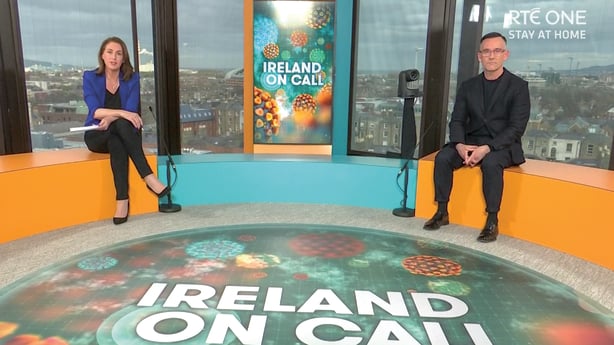
Now she’s here at the helm of her own current affairs show, and she’s both excited and nervous, wondering just what I might ask her. Maybe, she reasons, that's because the tables are turned, the questioner now the queried.
As she answers, I can almost see the cogs and tumblers whirring, seeking the right words, interrogating her replies, and asking when the recorder is eventually switched off so that I don't make her sound like a "knob". That would be difficult.
Katie Hannon grew up on a farm in north Kerry ("Bunglasha, a few miles outside Duagh"), the seventh of eight children, three boys and five girls. "Being from a big family totally knocks the corners off you," she says. The Hannon home was a house of talkers, rich with discourse and debate.
"My mum, Winnie, would never let any visitor leave the yard without bringing them in for a cup of tea, whether it was a travelling salesman selling socks or the guy from Kerry Co-op picking up the milk. My father, DJ, was big into politics, Fianna Fáil at a time when everyone knew everyone else’s politics. As children, we’d be bundled into the back of the car when he’d be going out canvassing for the next great white hope. Questions and Answers would never be missed in our house, the news was always on and the newspaper was the Irish Press with the Sunday Press every Sunday morning. So yes, politics was always in the ether at home."
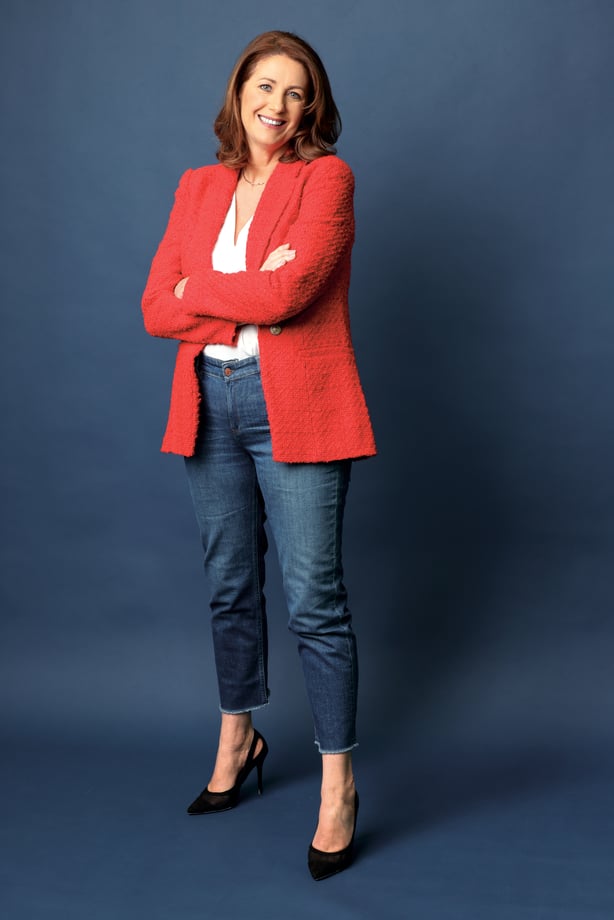
Her parents are gone some years now. "My mother was an amazing woman. She’d be putting us out to school, scalding the milking machine, feeding calves, milking the cows. I never saw her sitting down. She baked bread every single day and the dinner was on the table every evening after school. The women of that generation were incredible. Unfortunately, mum died on January 4th, 2011, when my girls were just four months old. I visited home that Christmas so at least she got to hold my babies."
Another sadness was the passing of her brother, who was just 30 when he died from cancer in 1993. "It left a huge hole in the family," says Katie. "Joe was in his late teens when he was first diagnosed and recovered after treatment. Then he got another type of cancer in his late 20s and that was ultimately that."
Hannon doesn’t want to dwell on this, not wanting to be seen as trading on a family tragedy, even as she acknowledges that it is part of her story too.
That story begins with the word, the schoolgirl who loved English, ever with her nose in a book. "I was good at essay writing but could never see it as a job. So, I figured journalism was a way to tell stories and get paid for it."
Following her Leaving Certificate in Listowel, she studied journalism in Rathmines, her first full-time job editing news stories for Aertel in RTÉ, before becoming a social diarist with The Herald at the age of 21. "When the political correspondent with the Evening Herald retired, the editor suggested that I put my name in the hat. I thought ‘Really?’ but I did, and I got it." She subsequently worked as a political correspondent for the Irish Examiner and as political editor with Ireland on Sunday.
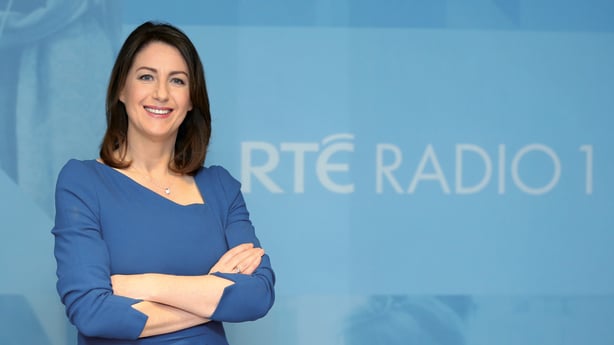
In her fledgling days as a ‘pol-corr’, Katie Hannon was known as "the girleen" by certain inhabitants of the Dáil. "I was aware of that tag but didn’t dwell on it and to some degree, it’s not the worst thing if people underestimate you," she says now.
"Being young and female also gave you a bit of an advantage, like when I was invited onto Questions and Answers because they needed young, female reporters to tap into that demographic. Of course, there were also a lot of disadvantages, as you were not in the boy’s club down there. You felt that if you were one of the lads you might have more opportunities to get stories. You were never going to be out playing golf with them. We took a lot of stuff for granted back then and brushed it off; stuff that would absolutely not wash now. But at the time, I just got on with the job."
In 2004, the year her book, The Naked Politician, was published, Hannon moved into broadcasting: cold-calling RTÉ and landing a job as a reporter with Prime Time Investigates. She covered, among other stories, the mother and baby homes, the Rescue 116 crash and the travails of Garda whistle-blower, Maurice McCabe.
"The Maurice McCabe story took five or so years and many times, people questioned why I was still going back to that well. But it was a newsworthy story, and I became very invested in it. Very unusually, there was a happy ending for Maurice, his wife Lorraine, and their family. It rarely works out that way for whistle-blowers."
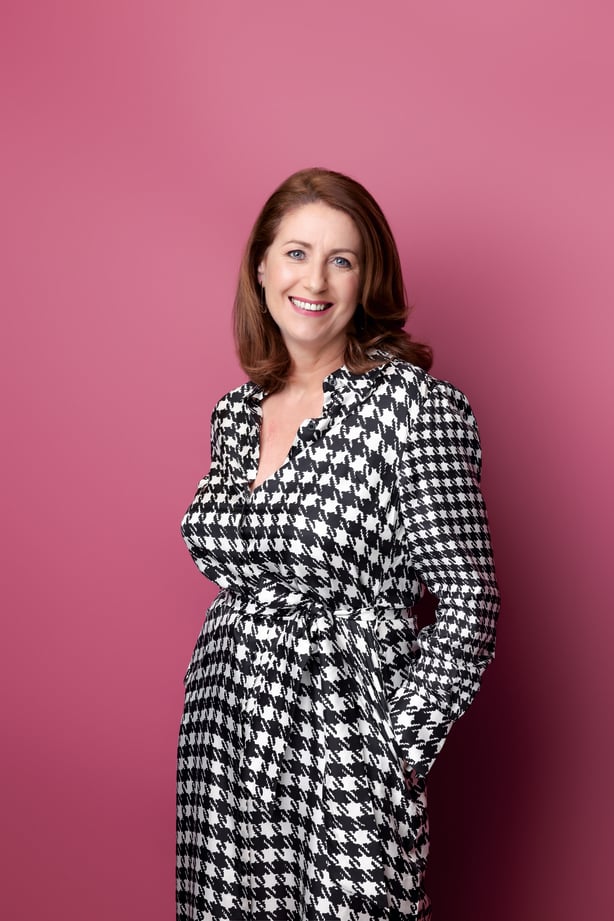
More recently, her acclaimed 2021 Radio 1 documentary, Women of Honour, highlighted the misogyny, bullying and sexual assault experienced by women in the Irish Defence Forces; a story that prompted a government review and is still ongoing.
I ask about juggling family and career hesitantly: wondering aloud if I’d ask the same question of a male journalist. "I can tell you straight: you wouldn’t," says Hannon. "I had my kids late in life and up to then, I worked all the hours possible. It never bothered me because I was so engaged with the stories. Then I had two babies, two premature babies, and took a full year off, using every bit of leave that I had. When I came back to work, it was so stressful. Suddenly, everything had to be concertinaed into a shorter time and the phone would ring and it would be the crèche and you’d go ‘No! No!’ And if I had one sick baby, I’d have two sick babies because of cross-infection. But once you got into it, you got the work done in half the time because you had to. I also think that I got better at my job because I had to be more disciplined."
Her twin daughters (she is married to Andrew Fitzpatrick, who also works in RTÉ) were born in September 2010. "We spent six weeks in the special care unit with our babies and that was a very traumatic time," she says. "You don’t just walk away from that and forget about it. So now, when I hear stories that are similar, it brings me right back and I feel that jolt again. My babies were two and a half pounds and just over three pounds when they were born, and they are hale and hearty now. The Rotunda Special Care Unit was just so good and so we were incredibly lucky and incredibly grateful for what they did for us."
While Hannon is a mostly private person, occasionally she allows telling chinks of light, as in a 2019 edition of Liveline when one caller, Vanessa, recalled her distress following the premature birth of her son. "I’ve been there myself", said the show’s stand-in host.
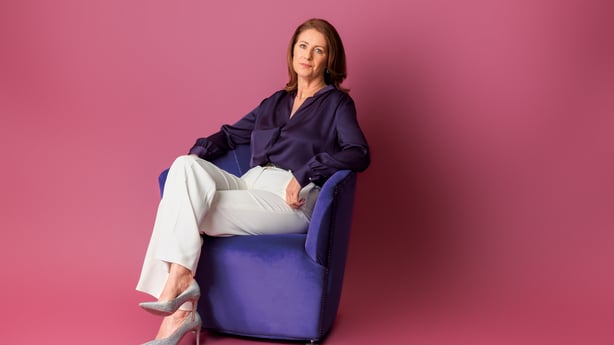
Empathy comes naturally to Hannon, but you’d be foolish to see her as soft touch. In January 2022, in the wake of the murder of Ashling Murphy, she received an email warning her that if her Radio 1 show, Saturday with Katie Hannon, solicited negative comments about men, she would have to "personally answer for it".
Hannon’s response was to read out the email’s contents live on air. No-nonsense has long been part of her DNA, the ‘girleen’ ever intent on making a difference. Or at least giving it her best shot. "I have become more cynical as life goes on," she says of the sometimes-wearying journalism beat. "In the wake of Women of Honour being broadcast, there was a flurry of apologies and people saying how terrible it is and how something must be done. Now we’re more than a year on and still don’t know what will be done to change things."
But she beats on. "Upfront will be regular people getting a platform to ask politicians about matters that impact their lives directly," she says of the townhall-style show. If there are echoes of Questions and Answers, the show will go beyond the studio audience to the social media one, with special editions planned that the producers hope to broadcast from around the country.
"And I must mention the tie-in podcast," says Hannon of the weekly production featuring quirky interviews with newsmakers. While she will no longer be a regular on radio ("I love radio"), Katie Hannon will still be on the bench for Liveline. Did her parents ever get to see or hear her on radio or TV?
"There was that time I was on Questions and Answers and that was huge because watching that at home was like a religious experience," she says. Now she has her name above the lights on Monday night, an ‘accidental’ broadcaster at home in her natural habitat.



